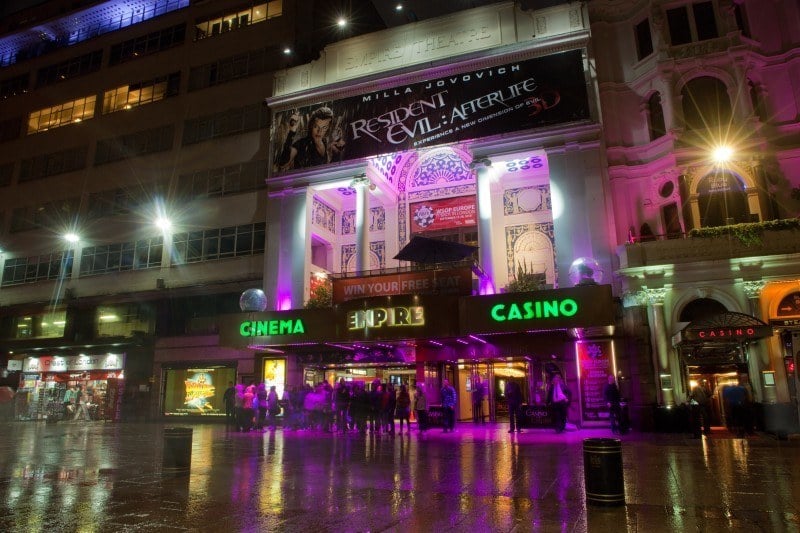Caesars London Casinos Censured by UK Regulator Over Lax Anti-Money Laundering Controls
Posted on: December 17, 2015, 09:25h.
Last updated on: December 17, 2015, 09:54h.

Caesars Entertainment has again come under fire for insufficient money laundering safeguards, this time at two of its London properties.
The UK Gambling Commission (UKGC) has publicly scolded the Las Vegas-based company for compliance failures at Empire Casino and the Playboy Club, both in London’s West End.
The news comes just three months after Caesars, which is currently embroiled in complex chapter 11 bankruptcy proceedings in a bid to reorganize some $18 billion of its debt, was fined $9 million by financial regulators in the US.
Those penalties came as the result of a 2012 investigation by the Financial Crimes Enforcement Network (FinCEN), which found Caesars had “openly allowed wealthy patrons to gamble anonymously” at its flagship Caesars Palace Las Vegas Strip property, in breach of FinCEN’s money-laundering compliance program.
Broken Promises
In an official statement released in September, Caesars claimed it had turned over a new leaf since 2012, the time of the FinCEN examination. The gaming operator also noted that it had made “substantial improvements” to “every aspect of its Bank Secrecy Act/anti-money laundering compliance program.
“The entire Caesars organization is committed to full compliance with the requirements applicable to casinos and to taking effective risk-based measures to prevent and detect money laundering,” a company statement added.
However, the UKGC found that this was not the case, at least at the two London properties investigated, and that processes and procedures used to manage the risk of money laundering at these casinos failed to comply with British financial laws.
The UKGC concluded that there were serious failures in due diligence with regard to assessing customer risk, as well as their gambler monitoring. Caesars also failed to obtain adequate information about the source of patrons’ funds, according to the Commission.
Among numerous other shortcomings was the company’s failure to make due diligence checks on VIP customers of other overseas Caesars Group companies.
$1.2 Million Forfeited
“The Commission has determined that there were significant weaknesses in the way Caesars managed risk with regard to money laundering,” said the UKGC, ” … [and] considers that this case provides valuable learning for operators, who should in light of these matters consider reviewing their legal obligations regarding the prevention of money laundering.”
Caesars has agreed to divest itself of £845,000 ($1.2 million), which will go to “socially responsible” causes, and will be required to take immediate action to rectify the problems highlighted by the Commission. An independent review of its progress in this regard will be undertaken in the near future at the operator’s expense.
“We hope the industry will learn the lessons from this case,” said Nick Tofiluk, executive director of the Gambling Commission. “It is their duty to put processes and policies in place to prevent money-laundering. If operators don’t put [those] in place then they risk losing their operating license.”
No comments yet